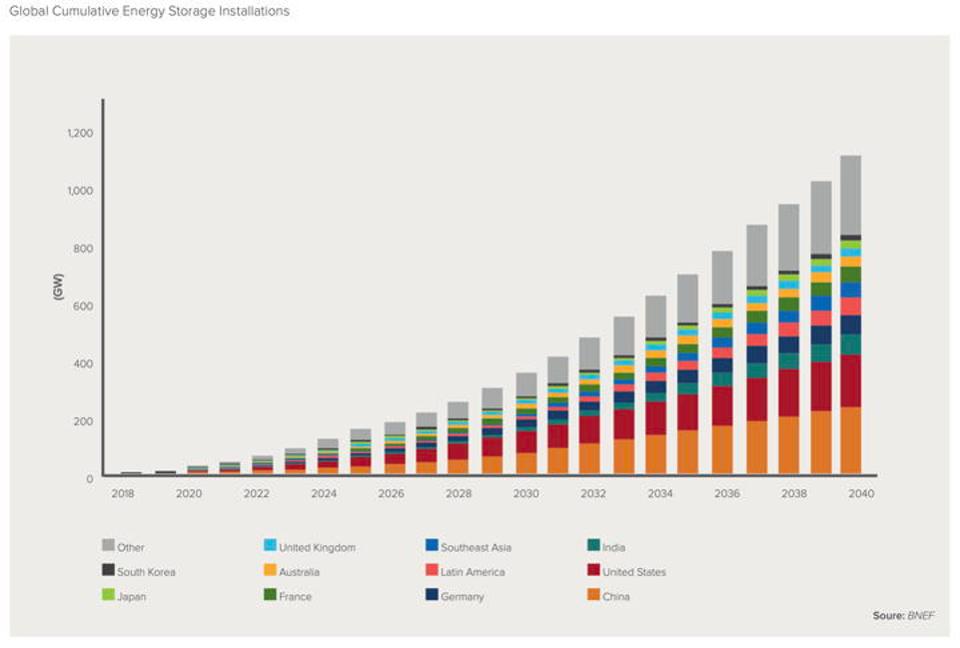A new report from the Rocky Mountain Institute confirms that the global energy transition is happening faster than models have predicted, thanks to massive investments in the advanced-battery technology ecosystem from the private and public sectors that, so far, total $150 billion through 2023.
In the first half of 2019 alone, venture-capital firms contributed $1.4 billion to energy storage technology companies. See: Huge Battery Investments drop energy- storage costs faster than expected–threatening natural gas:
These investments will push both Li-ion and new battery technologies across competitive thresholds for new applications more quickly than anticipated,” according to RMI. “This, in turn, will reduce the costs of decarbonization in key sectors and speed the global energy transition beyond the expectations of mainstream global energy models…
New natural-gas plants risk becoming stranded assets (unable to compete with renewables+storage before they’ve paid off their capital cost), while existing natural-gas plants cease to be competitive as soon as 2021, RMI predicts.
Renewables with storage are a massive growth opportunity for the world economy in terms of investment, jobs and improved efficiencies with cumulative global energy storage installations expected to explode over the next 20 years as charted below.
Storage solutions go far beyond just lithium-ion batteries and include new solid-state batteries for heavier transport as well as low-cost and long-duration batteries such as zinc-based, flow, and high-temperature batteries, low-and no-cobalt batteries now in development, as well as stored hydro and compressed air facilities that make use of abandoned underground mine caverns. See How an old Goderich salt mine could one day save you money on your hydro bill:
On Friday, Toronto-based energy and technology company HydroStor launched the first zero-emission advanced compressed air storage facility in the world, located on the grounds of a deserted solution mine salt cavern once used in the production of brine and table salt near the Maitland River.
The company says it will use the subterranean chambers and tunnels deep below the Ontario beach town to capture surplus energy that would otherwise be wasted and store it for later use.
The state-of-the-art energy storage facility is one of only three in the world, but HydroStor CEO and co-founder Curtis VanWalleghem said Goderich is the only one that has a zero carbon footprint.
“This is the world’s first emission-free compressed air facility,” he said. “We don’t consume any other fuel, just air and water.”



